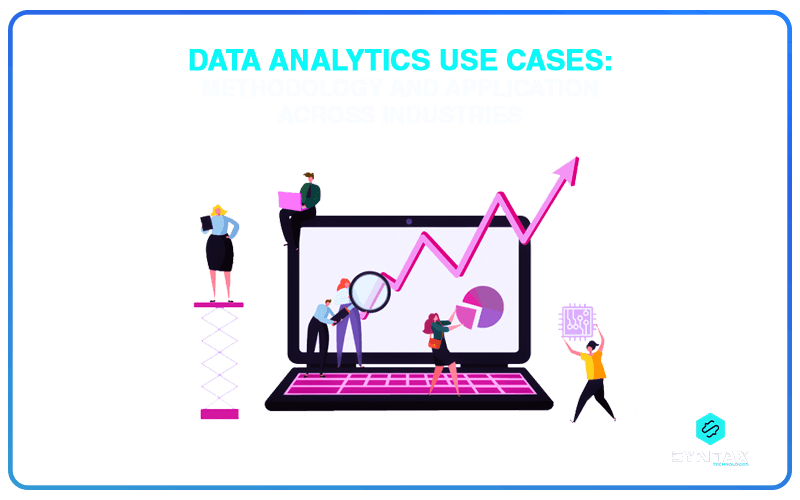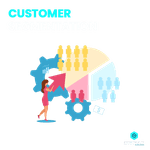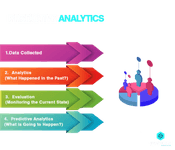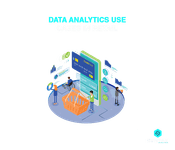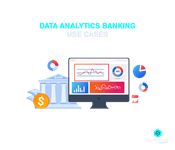Without Big Data Analytics, Companies are Blind and Deaf, Wandering out onto the Web like Deer on a Freeway – Geoffrey Moore (American Management Consultant and Author)
Imagine yourself to be a seller within an e-commerce market landscape. As a seller you want to sell your products, but at the same time you do not have the benefit of arranging for a personal interaction with your buyer. So how do you know your customers? How do you curate your strategy in order to meet their needs? The answer lies in Data Analytics. By way of analyzing digital metrics of consumers like search history, virtual impressions, likes, shares and so on; you certainly do stand the chance of responding to the needs of your customers in an improved manner. This is one of the many instances of Data Analytics Use Cases.
For a more detailed understanding of the issue of Data Analytics, refer to our blog on What is Data Analytics?
In this blog, we will look at what are Big Data Analytics Use Cases and the criteria for determining the same. We will also consider the Potential Use Cases for Big Data Analytics as well as look at its application across some of the industries.
What are Big Data Analytics Use Cases?
Before we get into defining Data Analytics Use Cases, it is important to understand the two senses in which the phrase use cases is used.
In the first sense, use case refers to a potential scenario defining a set of interactions between the user and the system for the accomplishment of a particular objective or goal. In this sense, Data Analytics Use Cases refers to the different ways in which business enterprises would make use of the analytics mechanism and data available, in order to extract insights which would guide business decision making.
In the second sense, use case refers to a usage scenario defining the application to which the entity can be put to use. In this sense, Big Data Analytics Use Cases refers to the different forms in which Data Analytics is utilized by industries across sectors for achieving their business objectives.
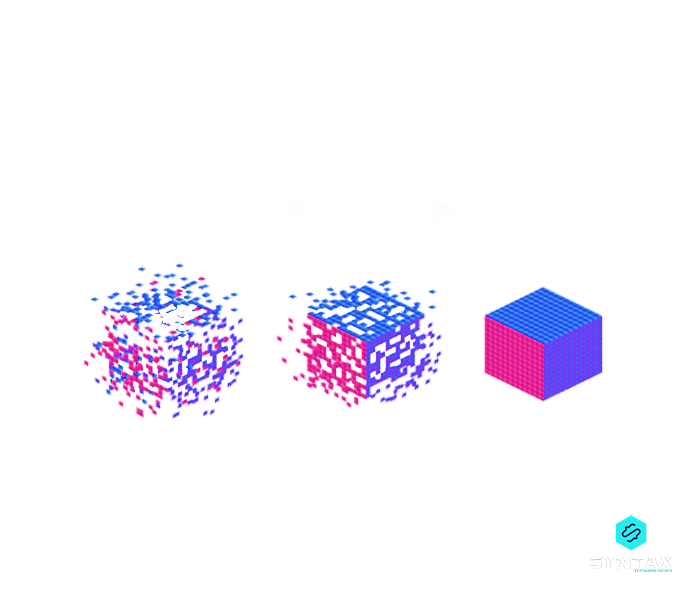
In both forms, the potential use cases for Big Data Analytics would be exemplified below.
Data Analytics Use Cases: Potential Scenario
In this section we will consider some of the Big Data Analytics Use Cases strategies which companies employ in order to make optimum use of data available with them.
- Customer Segmentation
The foundation of the idea of customer segmentation rests on the belief that consumers are unique. Their tastes and preferences are not universal and hence in order to fully cater to their needs, it is important to categorize them into different groups and consequently develop marketing strategies which are specific to different groups. But what is the basis of forming these groups Data Analytics in the form of Customer Analytics help in carefully analyzing the data collected from customer interaction and help in comprehending the attributes and traits of consumers. Consequently, this understanding helps in grouping the customers into different categories.
- Sentiment Analysis
Business organizations do serve a purpose. They cater to the commercial needs of society and operate on a profit agenda. In doing so, it is only beneficial if they are somehow able to gather information on the opinion of the people on their products and services. This has been made possible through Customer Sentiment Analysis which is again one of the prominent Data Analytics Use Cases. It is also referred to as Opinion Mining and helps in detecting opinions from a given context. Online data provide the subject matter for analysis; while Data Analytics not only helps in detecting polar opinions, but also helps in recognizing and identifying emotions.
- Personalized Marketing
How many times have you received notifications of online shopping apps or food delivery apps which addresses you by your name or How many times have you received notifications from service booking apps which seems to provide you with the exact options of services which you were looking for? I believe that this has become quite a commonplace phenomenon. It is a deliberate attempt by companies to try and strike a personal cord with the consumers. However, it is not that these apps are reading your mind. It is through advanced Data Analytics conducted on the data collected from your interaction with these apps, that these personalized automated messages are especially curated for different customers.
- Predictive Analytics
This is one of the most important Potential Use Cases for Data Analytics. As the name suggests, Predictive Analytics is a form of advanced Data Analytics which seeks to analyze historical data in order to build future business models and strategies. It utilizes different techniques of Data Analytics like Data Mining, Machine Learning, Modeling, Statistics and so on. Since the models are based on hard core data and facts, they are presumably much more reliable than those which are merely based on foresight and gut instincts.
- Market Basket Analytics
You must have purchased commodities online from different e-commerce websites. While doing so, you must have also come across product suggestions or frequently brought together options which are automatically generated to help you browse more such products which are in some way or the other related to your recent purchase or the item which you have just added to the cart. This entire mechanism is another instance of Data Analytics Use Cases which helps to forge associations between products on the basis of the fact that whether they are brought together or is often placed in the same cart.
- Price Optimization
Price fixation is a crucial business decision. It affects revenue, demand, satisfaction rate as well as purchasing behavior of consumers. The determination of price itself is a result of a number of factors and variables including the forces of demand and predictions of profit. However, Data Analytics can also be extremely useful in this process of price optimization. It helps in deriving insights on the past purchasing behavior of consumers and accordingly helps in suggesting relevant discount rates. Moreover, these optimal rates, based on analyzing historical data; helps in pushing demand as well as profits. As one of the top use cases for Data Analytics, the process also helps in framing relevant promotional campaigns.
Potential Use Cases for Big Data Analytics: Application Across Industries
In this section, we will look at the second sense in which Data Analytics Use Cases is understood. It refers to the application of Big Data Analytics in industries across sectors and the way in which it has helped them.
Data Analytics Use Cases in Retail
- Data Analytics is held to be useful in determining appropriate retail locations. Analysts believe that the best prospective location for business is one where the targeted customers are believed to spend most of their time. But how will you determine that? It is through technology like Data Analytics and Machine Learning that helps in deciding upon the best possible spot for your business.
- Data Analytics Use Cases in Retail is believed to spread across the different stages of the retail process: predictions for new product launch, in-store optimization, forecasting demand and so on.
- Data Analytics help in anticipating the demand of consumers. This is conducted through analyzing the past and existing purchasing patterns and linking the same with the market success of its existing products. This helps in developing predictive models for new products.
- When a retailer looks at the mass of its customers, he can see some of them as being more valuable as others. One of the potential use cases for Big Data Analytics within the field of retail is the assessment of customer lifetime value. By way of assessing purchasing patterns and customer behavior, the retailer identifies his best customers. This helps in curating marketing strategies with special emphasis on alluring this specific group.
- Data Analytics help in enhancing customer experience within the retail domain. Through personalized marketing, strategic customer interaction as well as customized selling propositions; retailers are being able to respond to the needs of their customers in an improved manner.
Data Analytics Banking Use Cases
- As one of the prominent Data Analytics Use Cases; financial institutions are increasingly seeking to exploit Big Data.
- Data Analytics in Banking provides for improved understanding of customer needs and market trends. This helps financial institutions in providing for improved decision making and consequently driving innovation.
- One of the prominent Data Analytics Banking Use Cases is in the form of fraud detection and ensuring of regulatory compliance. Financial institutions are alluring targets for cyber criminals and Data Analytics, combined with Cyber Security helps in providing robust Cyber Security Analytics solutions. These tools not only provide for early threat detection; but also help in supervising regulatory compliance.
- Given an upsurge in fraudulent practices involving money embezzlement; political authorities have increasingly been sanctioning anti-money laundering laws. While this is a positive development, it has also mounted pressure on the banking institutions which are required to submit regular reports on identification of suspicious and malicious activities. Banks heavily rely on the usage of Data Analytics for detecting fraud patterns.
Big Data Analytics Use Cases in Healthcare
- As far as Data Analytics Use Cases within the field of healthcare is concerned, the technique helps in streamlining and improving the healthcare infrastructure in the pursuit of better delivery of services to patients.
- One of the significant potential use cases for Big Data Analytics has been within the field of genomic research. It helps researchers to pinpoint biomarkers and disease genes which could help patients to understand issues which they might develop in future.
- Data Analytics is useful not only in terms of ensuring profitability for the healthcare institutions; but also helps in enhancing the quality of treatment and healthcare. Big Data Analytics seeks to adopt a panoramic view of a patient’s state of health and consequently provide personalized treatment.
- Another top use cases for Data Analytics within the field of healthcare is in terms of using Data Analytics for deriving data which helps in understanding reasons which account for the readmission of patients on a regular basis. In order to dig into these factors, Big Data Analytics is used for understanding connections between the rate of readmission and socio-economic variables of patients like income, crime rate, residential location and so on.
Conclusion
So as we conclude this blog, I am pretty sure that you must have been convinced of the many and diverse uses and benefits of Data Analytics for business enterprises. It is quite evident that the prospects of Data Analytics Use Cases are immense and it finds its application in different forms within the same business organization as well as in industries across sectors. If the modern age is a game of cards; data will definitely be the trump card. It is universally available, but the secret lies in optimally utilizing it to the benefit of business organizations. This happens to be one of the core principles of Big Data Analytics Use Cases.
Data Collection and the effort to derive valuable insights from the same, is an activity which is not restricted to a particular economic sector. The significance of Data Analytics has reached insurmountable proportions in business organizations on a global scale. Consequently, a career within the field of Data Analytics is certainly a prospect worth aiming for. We, at Syntax Technologies, bring to you an exciting opportunity of developing skills as a Data Analyst expert, right from the comfort of your home. Be a part of this enriching bootcamp and witness a difference in your career. Enrol now for our Data Analytics and Business Intelligence course.

